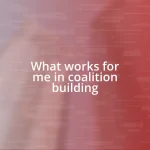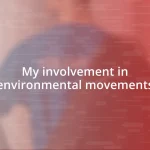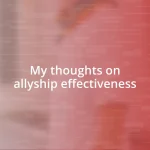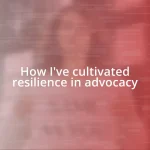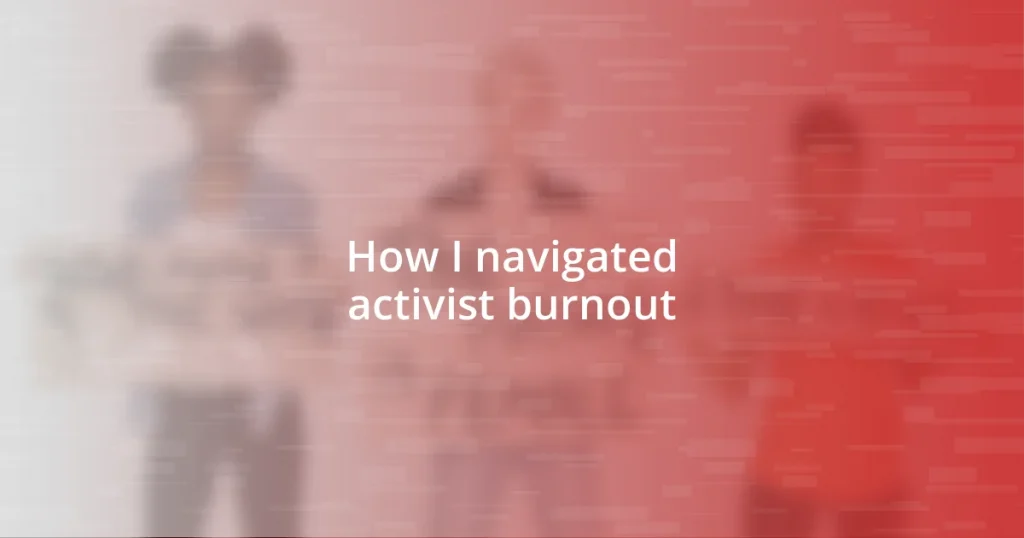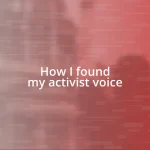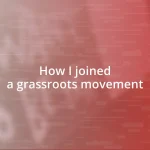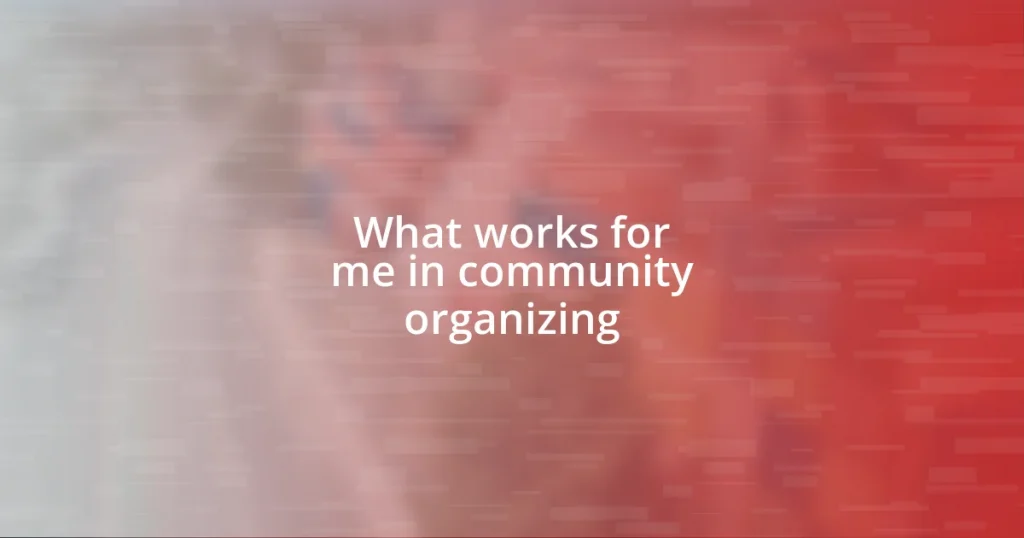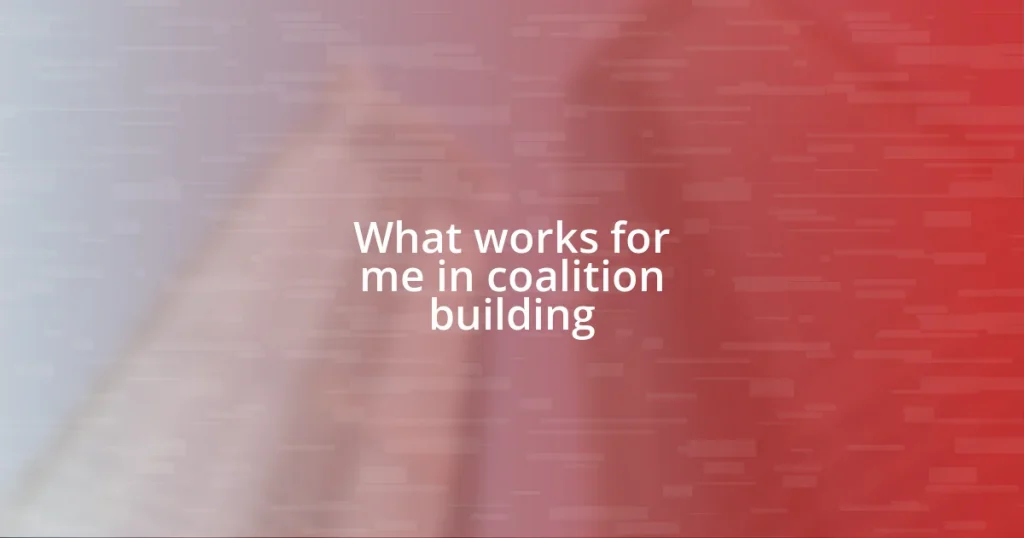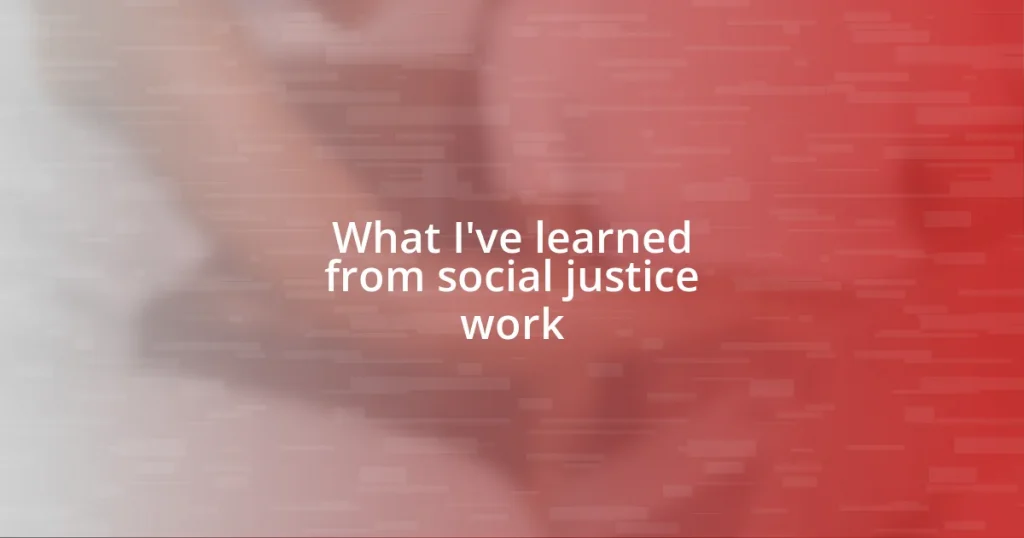Key takeaways:
- Recognizing signs of activist burnout, such as irritability, avoidance, and lack of passion, is crucial for maintaining well-being.
- Implementing stress management strategies, like taking intentional breaks and setting realistic goals, significantly helps in preventing burnout.
- Building a supportive network and reflecting on personal values lead to renewed motivation and a more sustainable approach to activism.
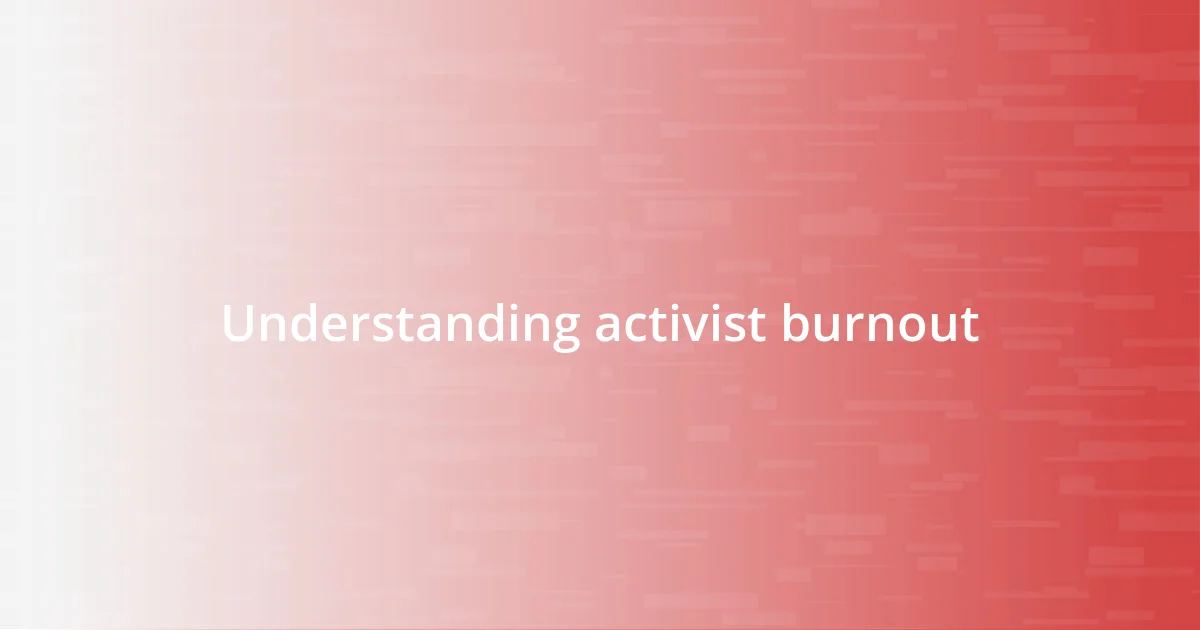
Understanding activist burnout
Activist burnout often sneaks up on you, like a shadow creeping into your life when you least expect it. I remember feeling this slow exhaustion wash over me after countless late nights spent rallying support for a cause I believed in. What starts as passion can easily morph into overwhelming fatigue if we’re not careful.
It’s a unique kind of fatigue, one that seeps into every facet of life, making even the smallest tasks feel Herculean. I once found myself staring blankly at my to-do list, wondering how I’d lost my spark. Have you ever felt that disconnect, where the cause you love starts feeling more like a weight than a purpose?
Understanding activist burnout requires acknowledging the emotional toll it takes. There were days when I’d scroll through social media, reading about injustices, and instead of feeling motivated, I became paralyzed by despair. Have you experienced that sinking feeling, where every headline feels like a personal loss? Recognizing these feelings is the first step toward coping and recovery.
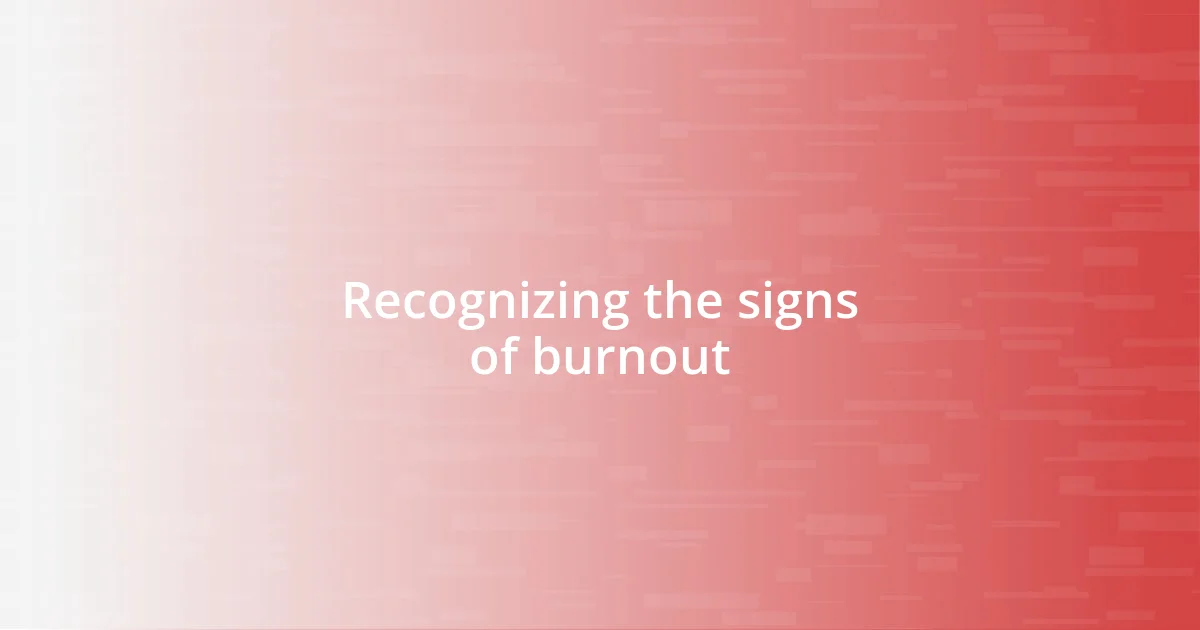
Recognizing the signs of burnout
Recognizing the signs of burnout can be tricky, especially when you’re deeply involved in advocacy. I remember a time when I dismissed my irritability, chalking it up to stress. But soon, I realized that my short temper had become the norm, a clear indicator that something was off. Deadlines that once lit a fire in me began to feel like lead weights.
Another telltale sign is when you start avoiding your usual activism activities. There was a point when I elected to skip meetings and protests, convincing myself that a break was warranted. However, I quickly understood that this reluctance stemmed from my mental exhaustion. It’s crucial to pay attention—sometimes, our minds are telling us what our hearts ignore.
Lastly, a shift in your passion can indicate burnout. The enthusiasm that once drove me to write letters or volunteer would flicker like a candle struggling against the wind. While it’s normal for motivation to ebb and flow, I learned that a consistent lack of interest could signal deeper issues. Have you ever noticed that? Recognizing these signs early can make a significant difference in your overall well-being.
| Signs of Burnout | Feelings Associated |
|---|---|
| Irritability | Frustration |
| Avoidance | Disconnection |
| Lack of Passion | Disinterest |
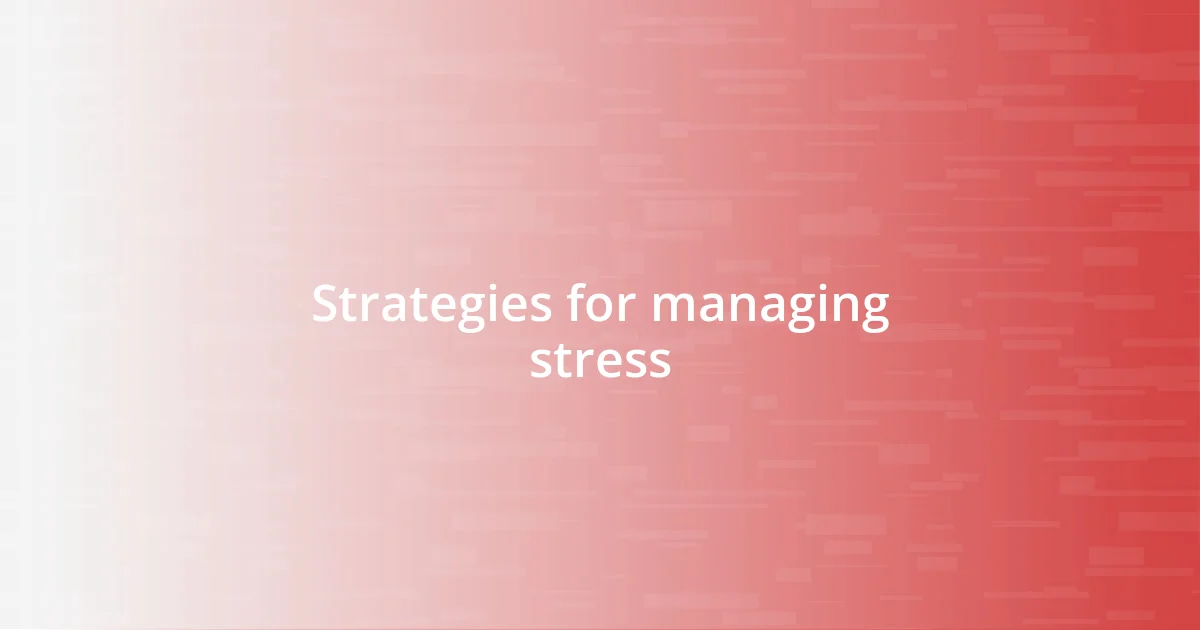
Strategies for managing stress
Managing stress is essential in the quest to avoid burnout. I found that taking regular breaks transformed my ability to cope with the demands of activism. I remember a particularly stressful week when I decided to take a short walk, feel the sun on my face, and breathe deeply. That moment of clarity helped me reset and approach my tasks with renewed energy. It sounds simple, but those little pauses can offer profound relief.
Some strategies that can help manage stress include:
- Mindfulness meditation: Practicing mindfulness helped me gain perspective on my emotions.
- Physical activity: Engaging in exercise was a game-changer; it was like releasing pent-up energy.
- Setting boundaries: I learned to say no to certain commitments, which reduced my feelings of being overwhelmed.
- Connecting with others: Sharing my struggles with friends provided not only support but also a sense of community.
- Creative outlets: I turned to journaling and art, allowing myself to express emotions that were hard to verbalize.
Exploring these strategies not only helped with stress but also rekindled my passion for activism. When I felt overwhelmed, reaching out to fellow activists often reminded me that I wasn’t alone in this journey.
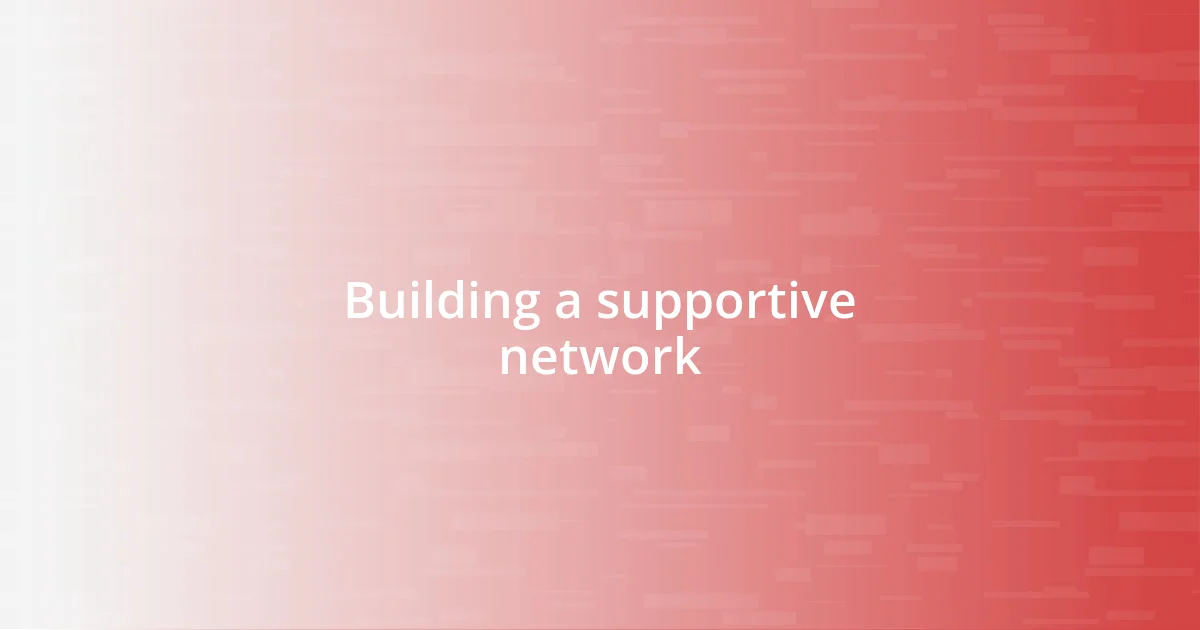
Building a supportive network
Building a supportive network is vital for sustainability in activism. I vividly remember the first time I reached out to friends who shared my passion. I was surprised by the warmth and understanding they offered. It was as if I had found my tribe—people who understood the struggles and joys of advocacy. Have you ever felt that sense of belonging? It was during those late-night discussions—sharing our fears and victories—that I felt recharged.
In the thick of my challenges, I learned the importance of cultivating relationships. Organizing informal meet-ups became a lifeline for me. We’d gather at local cafes, not just to brainstorm ideas but to check in with each other. Those moments of laughter and sincere conversation helped alleviate the weight of our shared responsibilities. I found that knowing I had allies made confronting obstacles less daunting.
Moreover, connecting with others in the activist community pushed me to be more open about my feelings. I realized that vulnerability isn’t a weakness; it’s a bridge to deeper connections. When I started sharing my struggles with burnout, others did the same, turning our encounters into spaces of mutual support. There’s something healing about knowing you’re not alone. Have you ever taken that leap to speak up and felt the relief wash over you? It’s a transformative step that not only builds resilience but also fosters a culture of empathy in our activism.
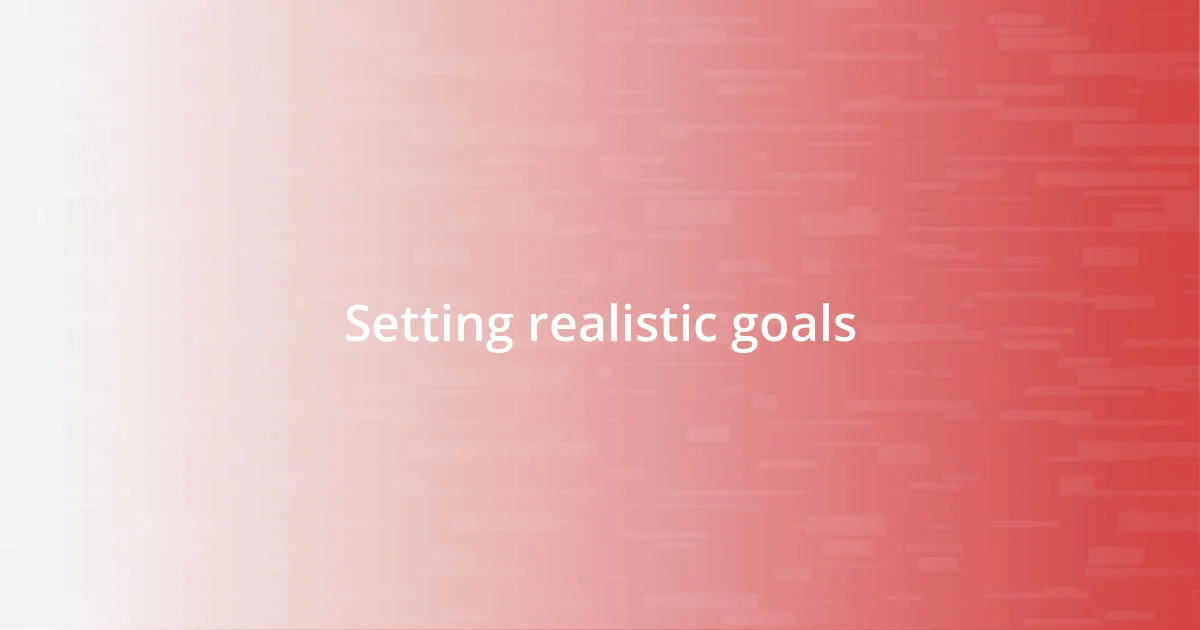
Setting realistic goals
Setting realistic goals was a game changer for me. I remember when I tried to tackle every issue at once, it felt exhilarating at first, but soon turned into a recipe for exhaustion. Now, I often ask myself: what can I realistically accomplish this week? This shift in mindset helped me break down larger projects into smaller, manageable tasks, making my efforts feel less overwhelming.
I’ve found that when I set achievable objectives, it gives me a sense of progress. For instance, instead of vowing to change the world in a month, I focused on organizing a small community event. It was fulfilling to see that come to life. Celebrating those smaller wins, like sending out invitations or gathering supplies, fueled my enthusiasm and reminded me that every action counts and contributes to the greater cause.
To keep myself grounded, I also started writing down my goals with specific timelines. This practice not only clarifies my intentions but also reveals when I may be overcommitting. Reflecting on those plans every week helps me adjust and prioritize. Have you tried this approach? I’ve discovered that taking the time to reflect on what really matters reassures me that I’m on the right track and helps avoid that dreaded burnout.
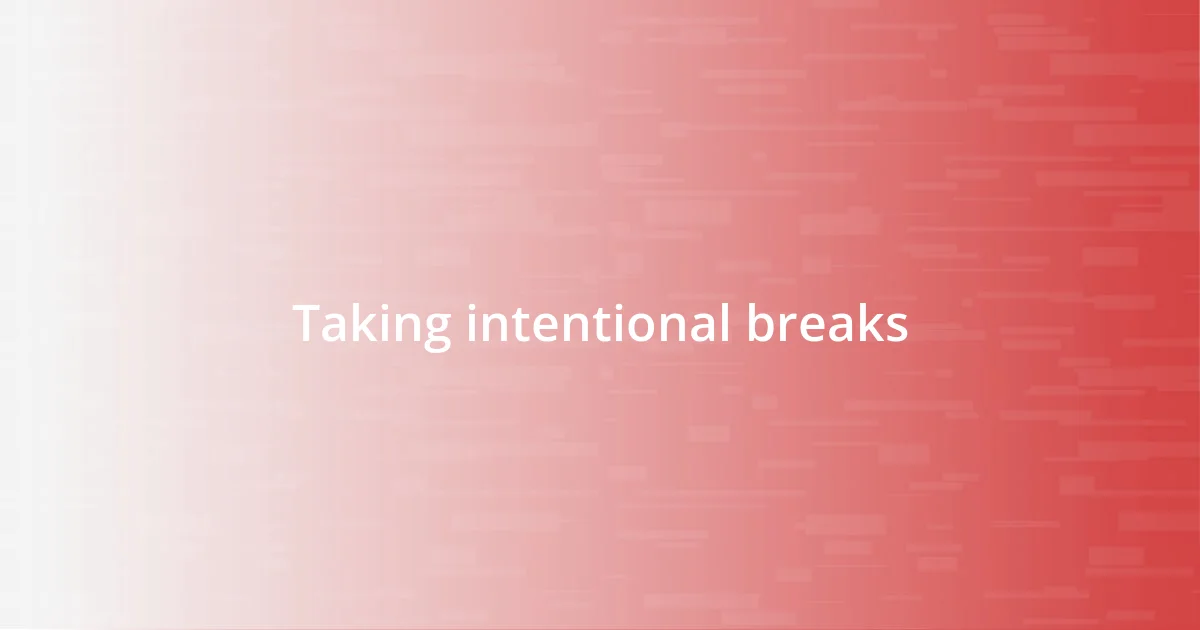
Taking intentional breaks
Taking intentional breaks became a critical practice for me, especially as the weight of activism began to feel unbearable. I recall a moment when I burned the candle at both ends—late nights and early mornings left me drained. Finally, I made a conscious decision to step back. On weekends, I would unplug from social media and immerse myself in nature, a simple yet powerful reset. Have you ever noticed how just a few hours away from the chaos can lift your spirits? I found those outings not only calmed my mind but also refueled my passion for the cause.
The beauty of intentional breaks lies in their ability to restore perspective. One day, after a particularly taxing month of rallies and meetings, I spent an afternoon in a nearby park, sketching the vibrant scenery around me. I felt my worries fade into the background, allowing me to tap into a creative side that often got sidelined. It was in those peaceful moments that I realized taking a little time for myself didn’t mean giving up; instead, it reminded me why I fought so hard in the first place. Have you ever felt that rush of inspiration after stepping away?
Incorporating regular breaks into my routine was like hitting the reset button on my motivations. Initially, it felt strange to pause when there was so much to do. Yet, I learned that it’s essential to listen to my body and mind. I began scheduling short breaks throughout my week—simple pauses for a cup of tea or a few deep breaths. Those intentional moments became a lifeline, helping me maintain balance and, surprisingly, increasing my effectiveness when I returned to my work. Don’t you think that sometimes a little space can create room for clarity and new ideas?
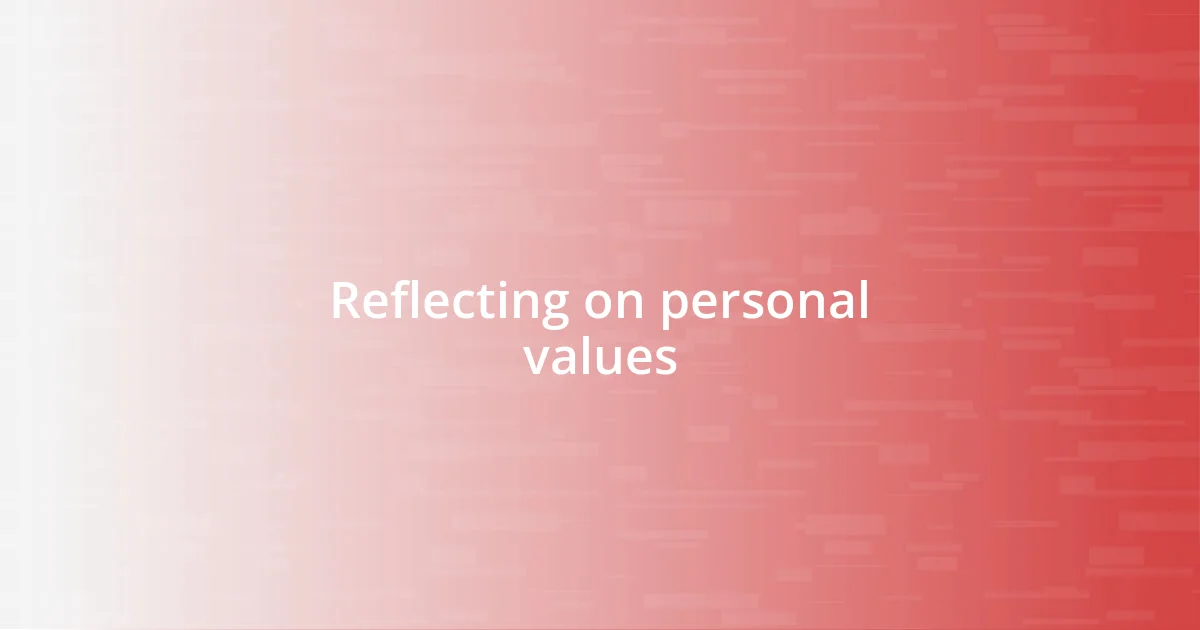
Reflecting on personal values
Reflecting on my personal values was a crucial turning point in my journey to overcome activist burnout. I vividly remember a day when I felt completely lost amid a whirlwind of campaigns and causes. It hit me then that I wasn’t fully connected to what truly mattered to me—those core beliefs fueled my passion but had taken a backseat to external pressures. Have you ever found yourself working on things that didn’t resonate with your own values? Redefining what was important for me brought a surge of motivation and clarity.
I began to write down my values and assess the alignment of my actions with those principles. One night, while sipping herbal tea, I asked myself, “What drives me?” I realized my commitment to social justice, community engagement, and environmental sustainability weren’t just abstract concepts—they were woven into my identity. This revelation sparked an emotional shift; I felt a renewed sense of purpose as I started focusing on initiatives that genuinely aligned with my values rather than stretching myself thin across every possible project. Isn’t it liberating to pursue causes that resonate with who you are?
As I journeyed through this reflective process, the burdens of guilt and obligation began to dissipate. I found solace in saying “no” to things that didn’t align with my core beliefs. For example, I turned down an opportunity to participate in a large protest because I sensed it would drain my energy without feeding my convictions. It was tough at first, but I realized that reinforcing my boundaries allows me to contribute more meaningfully. What about you? How often do you check in with your own values in the face of relentless demands? I’ve learned that staying true to myself not only safeguards my well-being but also enhances my impact as an activist.

